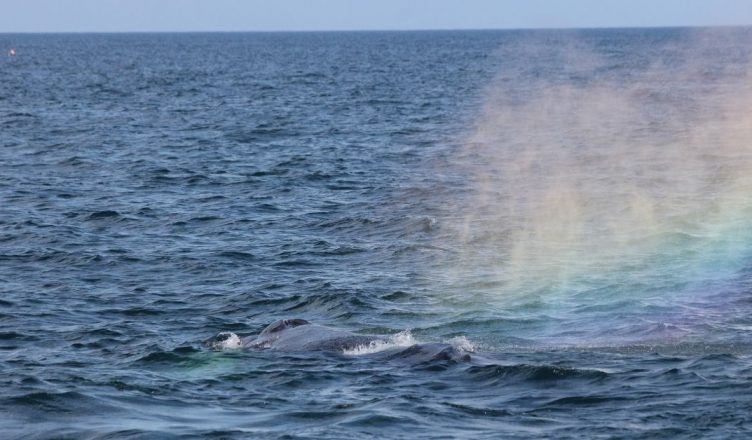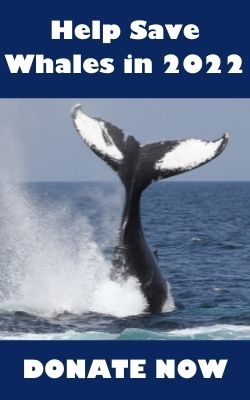We were excited to get back to some of our more traditional programs this year, while also expanding the new programs we started in 2020. It was a busy year, but we were able to fulfill the high demand for programs, thanks to your support! Here are just a few of the things we accomplished this year:
- We documented whale distribution, behavior and human interactions in the Jeffreys Ledge region. Humpback whales were seen on all of the trips we made offshore! We collaborated with several other organizations on studies that we look forward to sharing with you in the near future.
- Volunteers picked up more than 60,000 pieces of litter from local beaches, protecting marine life from harmful interactions.
- Our Blue Ocean Discovery Center welcomed more than 18,000 visitors, many of whom had never had the magical experience of seeing a sea star or crab up close. We also installed an Atlantic white-sided dolphin skeleton, which was assembled as part of a student project.
- We hosted 8 summer and 3 fall interns. They taught thousands of visitors and gained valuable experience in research and education.
- Our microplastics studies continued, and we lent our microplastics teaching kit to several schools from Portland ME to Marblehead MA!
- To reduce wildlife entanglement, we installed fishing line recycling bins at marinas and tackle shops along the NH coast.
Our Favorite Images from 2021
Our staff compiled some of our favorite images from whale watches, beach cleanups, and programs this year. Check them out in this 4-minute video!
You Can Make a Difference for Marine Life
Support our work today by making a tax-deductible donation. Your gift directly impacts marine life in the Gulf of Maine by supporting crucial research and education programs. Donate now
Protecting Marine Life in 2022
We have exciting plans for 2022. Here are some of the things we’ll accomplish, with your support:
- Increase protection for whales in the Gulf of Maine by expanding our research. We will increase data collection through partnering with charter vessels and piloting a citizen science reporting program. This will help us learn about whale distributions, changes due to climate change and prey availability and human threats to whales.
- Marine debris cleanup and research – We’re expanding our Adopt-a-Beach Program, installing more fishing line recycling bins, and studying microplastics on NH beaches. This will protect marine life by removing harmful litter from their environment and help us identify litter sources so we can prevent future litter.
- Education – We are offering a toddler program at our Blue Ocean Discovery Center, lending out microplastics educator kits to teachers around New England, updating our Discovery Center exhibits, and offering engaging virtual and in-person programs for audiences of all ages.
Have a wonderful New Year!







